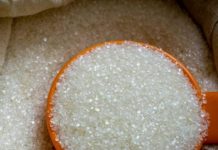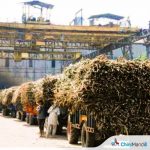The Executive Secretary of Nigeria’s National Sugar Development Council, Kamar Bakrin, said Nigeria needs to invest $5 billion to become self-sufficient in sugar production.
Nigeria produces only 48,000 metric tonnes annually, while it consumes about 1.8 million metric tonnes. This creates a gap of about 1.75 million metric tonnes, met mostly through imports.
Bakrin said he is against a sugar tax, arguing that Nigerians consume sugar at the rate of 9 kg annually per person. He observed that this consumption rate is minimal, especially in such a populous country, adding that most of the sugar consumed in Nigeria goes to products from the industry, not necessarily personal consumption.
During a media session in Lagos, Bakrin discussed Nigeria’s growing sugar industry, which is currently valued at $2 billion. He said that an investment of $5 billion is required to help the sector grow and allow Nigeria to reduce its dependence on imported sugar. According to Bakrin, expanding the sugar industry would not only increase production but would also create vital infrastructure like roads, schools, and healthcare facilities in rural areas where sugar farms are generally located.
Bakrin also pointed to the global leaders in sugar production, noting that Brazil leads with 41 million metric tonnes, followed by India and Thailand. Within Africa, Egypt is the leading producer, while South Africa is the continent’s top sugar exporter. Although Nigeria has not yet reached this level of production, Bakrin explained that the country has the potential to do so. Currently, Nigeria uses only 14,000 hectares for sugar farming, yet around 250,000 hectares would be needed to fully meet local demand. He added that Nigeria has approximately 800,000 hectares of land suitable for sugar farming, which gives the country ample room to expand.
He also noted that Nigeria has a sugar refinery capacity of 3.7 million metric tonnes, enough to meet local needs if more raw sugar were produced locally. Achieving full production, however, requires long-term financial support, as it takes around four years from planting sugarcane to producing the first batch of sugar.
To support the expansion, the NSDC is working to secure the necessary funding and to revamp the Nigerian Sugar Institute to boost skills and knowledge in the sugar industry. Bakrin noted that it is crucial to attract long-term, affordable funding to help the sector reach its full potential.
Regarding the proposed sugar tax, Bakrin argued that such a tax is unnecessary in Nigeria, as the country’s sugar consumption is relatively low. He suggested that calls for a sugar tax often come from outside groups without a full understanding of Nigeria’s situation. He urged careful consideration of the facts before adopting such a measure, emphasizing the need for a balanced view on sugar consumption in Nigeria.
Continue reading Chinimandi.com for more news about the Sugar and Allied Sectors.












